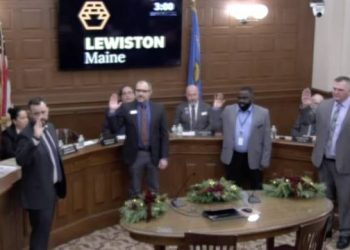House Speaker Mike Johnson (R-La.) has announced a vigil in Statuary Hall of the Capitol tonight at 6:15 PM ET to honor Charlie Kirk.
While the event is expected to be solemn, the atmosphere on Capitol Hill is charged. Both Democrats and Republicans are trading accusations regarding the toxic political climate, with calls to ‘lower the temperature.’ However, it’s important to remember that Congress acts more like a thermometer than a thermostat.
Verbal confrontations could arise during the ceremony, as lawmakers return to the Capitol afterward amidst heightened tensions.
Concerns about personal security are prominent among members, yet a concrete plan for safeguarding lawmakers remains elusive.
This situation ties into the ongoing discussions about government funding, which is critical for ensuring lawmakers’ security.
Government funding is set to expire at 11:59:59 PM ET on September 30, with the House scheduled to be out of session next week. Additionally, Rosh Hashanah begins at sundown on September 23, limiting Congress’s time to act before a potential shutdown.
There are indications that the House may attempt to pass a clean continuing resolution (CR) this week, extending funding through November 21.
This bill would maintain last year’s funding levels while introducing three new bills for the fiscal year, covering agriculture, military construction/VA, and the legislative branch.
However, issues arise regarding security funding.
The White House has requested an additional $58 million for security measures for the administration and the courts in light of Kirk’s murder, intending to match that with equivalent funds for Congress. Some lawmakers, however, may oppose this figure, arguing it is insufficient given the numerous threats faced.
“Figure out what you want and put it in the bill. It’s not something we are going to disagree on,” said a senior House source.
Democrats are eager for a ‘victory’ in this funding debate, especially after Senate Minority Leader Chuck Schumer (D-N.Y.) was perceived to have made concessions in the spring funding negotiations.
A key Democratic request is the renewal of Obamacare subsidies, set to expire at the year’s end, which could significantly impact healthcare for millions of Americans if not addressed.
Some Republicans support extending these subsidies as well, but there is hesitance to tie this renewal to the interim spending bill.
In summary, Republicans are waiting for Democrats to clarify their demands, while Democrats are struggling to articulate them. Additionally, rank-and-file Republicans are looking for guidance from their leadership.
One potential action could involve the House voting on the clean CR along with the other spending bills later this week.
However, the House’s ‘three-day rule’ necessitates that legislation be posted for three days before a vote. If the House aims to vote before its scheduled recess, this would likely occur on Thursday, necessitating a vote to post the bill on Monday.
What the House may post remains uncertain, as does the likelihood of passing a stopgap spending package.
Mathematically, the current House consists of 432 members: 219 Republicans and 213 Democrats. Republicans can afford to lose only two votes to pass the bill. Rep. Thomas Massie (R-Ky.) and potentially others may oppose a temporary spending bill, while Democrats, being in the minority, are expected to look to the majority for solutions.
This situation could further escalate tensions on Capitol Hill, already heightened due to Kirk’s death.
Expect increased verbal clashes and disagreements from Congress as this issue unfolds.
 Telegram is where we really talk. Don't miss out!
Telegram is where we really talk. Don't miss out!









